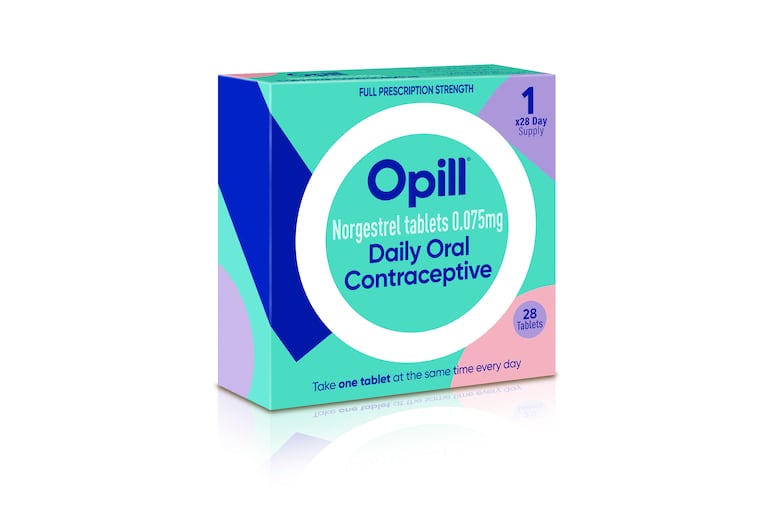Over-the-counter birth control pill is a small victory
Our state and country have a lot of work to do to improve access to reproductive health. So let's celebrate, then get back to work.

Last Thursday, the Food and Drug Administration made it as easy to get the birth control pill Opill as a bottle of Tylenol. Going forward, Opill will be available over the counter, without a prescription.
The low-dose, progestin-only minipill manufactured by Perrigo is expected to be available in drug stores across the nation in early 2024.
At a time in which the ultraconservative U.S. Supreme Court has taken a sledgehammer to legal abortion and many state lawmakers are jeopardizing the lives and health of millions of pregnant women by forcing them to travel to obtain care, surreptitiously obtain abortion pills, or — in too many cases — carry an unintended pregnancy to term, this small victory feels particularly welcome. And yet, it’s also like watching Nick Castellanos hit a home run when the Phillies are losing 9-0. It feels good, but you know it’s not enough.
It feels good, but you know it’s not enough.
The FDA’s action came after years of advocacy from reproductive rights activists, with support from both the American Medical Association and American College of Obstetricians and Gynecologists. Not only is the low-dose birth control pill safe to use, it is more effective at preventing pregnancy than other nonprescription methods such as condoms or spermicides.
The FDA’s decision brings the U.S. in line with more than 100 countries across the globe that permit the sale of birth control without a prescription.
Importantly, making Opill available over-the-counter could significantly increase access to the pill. One of the biggest impediments to obtaining birth control pills is needing a prescription. If women need to see a prescriber in-person, they may well have additional expenses for transportation, childcare, or taking unpaid time off work.
These additional costs and logistical hurdles particularly disadvantage the nearly 8 million women of reproductive age who have no health insurance, and are already struggling to make ends meet. The prescription requirement also disproportionately affects younger women, who may have coverage through their parents’ insurance, but don’t want their parents to know they are sexually active. Being able to buy the pill at a local drugstore will dramatically increase their ability to prevent pregnancy.
These unnecessary costs and logistical barriers are exacerbated for the three-quarters of a million Pennsylvania women who live in contraceptive deserts — counties in which there is no reasonable access to health centers offering the full range of contraceptive methods.
But like a solo home run when we’re down nine runs, more needs to be done.
» READ MORE: The Supreme Court overturned my abortion case Friday. But I won’t stop fighting.
First, the FDA has approved the progestin-only minipill for over-the-counter use, not the more widely used combination birth control pill that includes both progestin and estrogen. There is an application pending for the more widely used combination pill, Zena, which should be approved as soon as possible.
What’s more, many women who have health coverage may still need a prescription to get reimbursed for the cost of Opill, even when it is available over the counter. The good news is that Pennsylvania permits clinics and online providers to provide prescriptions by telemedicine, which for some women may be the best option. But Pennsylvania should also permit pharmacists to directly prescribe hormonal contraceptives, as 25 states and Washington, D.C., allow.
Pennsylvania, like more than a dozen states, could also require all private insurers who offer policies in Pennsylvania to provide coverage for the full range of contraceptives, counseling, and services at no cost to the patient. These plans should allow prescriptions to be written for up to a year’s supply of pills, to reduce the cost of co-pays and repeated trips to the pharmacy for refills. Pennsylvania, like other states, also should mandate that plans sold in the commonwealth pay for all over-the-counter contraception, giving women who use Opill and men who use condoms an added benefit.
Equally important, Pennsylvania can increase state funding for family planning services that are supported by federal Title X grants, whose funding has remained stagnant in recent years. Unfortunately, the 2023 Pennsylvania budget provides over $7 million in funding for antiabortion crisis pregnancy centers, a 30% increase over last year. These centers, which are located throughout the state, advocate against abortion and, as the Women’s Law Project has found, too often provide misleading and medically inaccurate information to pregnant people, primarily teens.
If the state is going to increase funding for these organizations by 30%, the least it could do is also increase its support to family planning organizations that provide accurate information about contraception.
But yes, when the FDA’s announcement about Opill appeared Thursday, I was elated. Although our state and country have a lot of work to do to improve access to reproductive health, it’s important to celebrate any victory when it comes.
Then we get back to work.
Kathryn Kolbert, the cofounder of the Center for Reproductive Rights, argued Planned Parenthood v. Casey before the Supreme Court in 1992. She is the coauthor with Julie F. Kay of “Controlling Women: What We Must Do Now to Save Reproductive Freedom” (Hachette Books 2021).